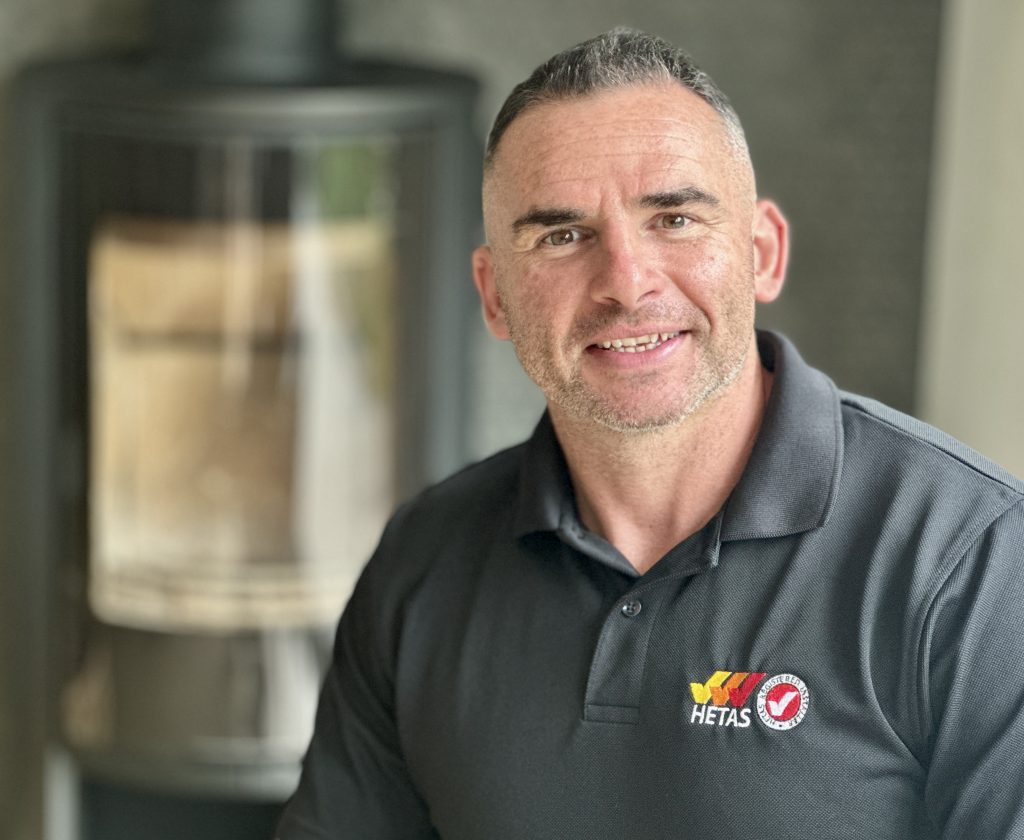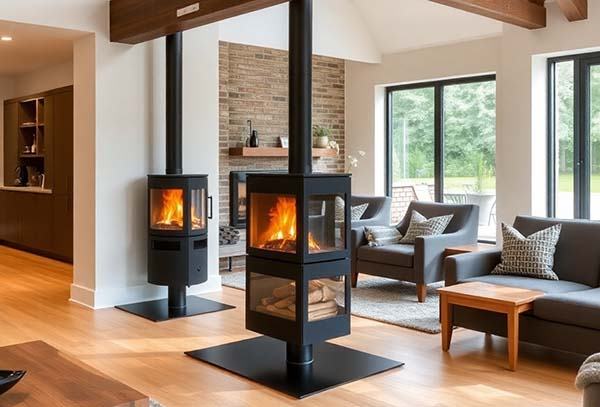Expert answers from your local installer.
By Wes Dodd – WD Wood Burner Installations, Poole, Bournemouth & Dorset
Log burners are more popular than ever in Dorset homes – adding warmth, character, and value. But if you’re considering one, or already own one, it’s natural to have questions.
As a HETAS-registered wood burner installer covering Poole, Bournemouth, Christchurch, and across Dorset, I’ve answered thousands of queries from customers over the years. Here are the most common questions about log burners – and my expert answers.
Do I Need a Chimney to Have a Log Burner?
No – you don’t need a traditional chimney. If your home doesn’t have one, we can fit a twin-wall flue system that safely carries smoke outside. This means even modern houses, extensions, or bungalows in areas like Upton, Broadstone, or Littledown can enjoy a wood burner.
Are Log Burners Safe?
Yes – when installed and maintained correctly. Safety comes down to:
- Professional installation by a HETAS-approved engineer.
- Using the right fuel (seasoned or kiln-dried logs under 20% moisture).
- Chimney sweeping at least once a year to prevent creosote build-up.
- Having a carbon monoxide alarm fitted (a legal requirement).
With these in place, log burners are very safe.
Do Log Burners Save Money?
Yes – especially with today’s rising energy costs. A modern log burner is up to 80% efficient, compared to around 20% for an open fire.
Customers across Dorset often use their stove to reduce reliance on gas and electricity, saving money on bills.
What’s the Best Wood to Burn?
- Hardwoods (oak, ash, beech): Burn hotter and longer – ideal for main fuel.
- Softwoods (pine, spruce): Burn quickly – best used as kindling.
- Always choose logs with less than 20% moisture. Wet logs waste energy and produce smoke.
How Often Should I Sweep My Chimney?
At least once a year – or twice if you use your stove daily. A sweep keeps your chimney clear, improves efficiency, and reduces fire risk.
We provide chimney sweeping across Poole, Bournemouth, and Dorset, so it’s easy to stay on top of maintenance.
Can I Cook on a Log Burner?
Some stoves come with flat tops that allow for boiling water, simmering stews, or keeping food warm. While not all log burners are designed for cooking, many customers in rural Dorset enjoy using theirs this way.
Do Log Burners Affect the Environment?
When used correctly, wood burners can be eco-friendly:
- Wood is a renewable fuel when sustainably sourced.
- Using Ecodesign stoves ensures cleaner burning.
- Dry logs produce less smoke and emissions.
Log burners are still a greener choice compared to fossil fuels.
How Long Does Installation Take?
Most installations take 1–2 days, depending on whether you already have a chimney or need a flue system. I’ll provide a clear timeframe after a site survey.
How Much Does a Log Burner Cost?
The cost varies depending on:
- The size and type of stove.
- Whether you have a chimney or need a flue system.
- Any additional work required (e.g. hearth construction, liners).
You supply the wood burner, and I’ll provide a free survey and quote for the installation.
Comparison Table – Log Burner Benefits
| Benefit | What It Means for You |
|---|---|
| Efficiency | Up to 80% – more heat, less waste |
| Cost savings | Reduced gas and electricity bills |
| Eco-friendly | Renewable fuel, especially with dry logs |
| Cosy atmosphere | Warmth, charm, and a focal point in your home |
| Adds value | Attractive selling point for Dorset homes |
Final Thoughts
Log burners are safe, efficient, and eco-friendly when installed and maintained correctly. Whether you’re wondering about chimneys, safety, or costs, the key is using a HETAS-approved installer who can give the right advice.
As your local wood burner expert in Poole, Bournemouth, Christchurch, Wimborne, Swanage, Wareham, and Corfe Mullen, I’m here to answer questions and help you find the perfect stove for your home.
👉 Contact WD Wood Burner Installations today for professional fitting, chimney sweeping, and expert advice across Dorset.




